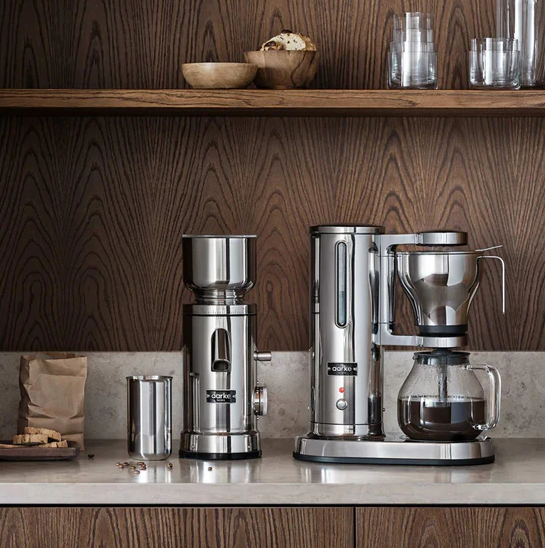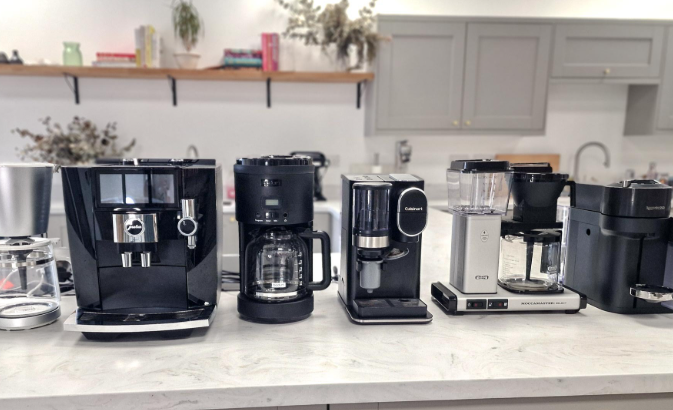Investing in a coffeemaker can transform your daily coffee routine, offering convenience, customization, and cost savings. However, like any appliance, coffeemakers come with their own set of advantages and drawbacks. Whether you’re a casual coffee drinker or a caffeine enthusiast, understanding the coffeemaker pros and cons will help you decide if this kitchen staple suits your needs. In this comprehensive guide, we’ll explore the benefits and potential downsides of owning a coffeemaker, along with tips on coffeemaker setup, maintenance, and troubleshooting to ensure you get the most out of your brewing experience. For more insights on choosing the perfect machine, check out our coffee guide.
What Is a Coffeemaker and Why Consider One?
A coffeemaker is a kitchen appliance designed to brew coffee automatically, saving you time and effort compared to manual methods like pour-over or French press. From drip machines to single-serve pod systems and portable coffeemakers, these devices cater to a wide range of preferences. But before you dive into the world of automated brewing, it’s essential to weigh the coffeemaker pros and cons to determine if it aligns with your lifestyle. Let’s break down the key advantages and disadvantages, along with practical coffeemaker tips to enhance your brewing journey.
The Pros of Owning a Coffeemaker
Owning a coffeemaker can elevate your coffee game, offering convenience and consistency. Here are the top benefits of incorporating a coffeemaker into your routine:
1. Convenience and Time-Saving
One of the biggest coffeemaker pros is the convenience it offers. With a coffeemaker, you can brew a fresh cup or pot of coffee with minimal effort. Most machines feature programmable settings, allowing you to set a timer for your morning brew. This means you can wake up to the aroma of freshly brewed coffee without lifting a finger. For busy professionals or parents, this time-saving feature is a game-changer. Learning how to use a coffeemaker is typically straightforward, with user-friendly controls that make brewing accessible to everyone.
2. Cost Savings Over Time
While the upfront cost of a coffeemaker may seem like an investment, it can save you money in the long run. Instead of spending $5 daily at a coffee shop, brewing at home with a coffeemaker costs pennies per cup. Even high-end models pay for themselves over time, especially if you’re a frequent coffee drinker. For budget-conscious coffee lovers, exploring the best coffeemaker guide can help you find an affordable yet reliable machine.
3. Customization and Versatility
Modern coffeemakers offer a range of brewing options, from bold espresso shots to light drip coffee. Many machines allow you to adjust brew strength, temperature, and serving size, giving you full control over your coffee’s flavor profile. Whether you prefer a strong black coffee or a frothy latte, there’s a coffeemaker to suit your taste. Portable coffeemakers are also a great option for travelers or campers who want to enjoy their favorite brew on the go.
4. Consistency in Every Cup
Unlike manual brewing methods that rely on precise measurements and timing, coffeemakers deliver consistent results with every brew. Once you master the coffeemaker setup, you can replicate your ideal cup every time. This reliability is especially appealing for those who value a predictable coffee experience without the guesswork.

5. Eco-Friendly Options
Many coffeemakers now support reusable filters, reducing the need for disposable paper filters or single-use pods. By choosing a machine with sustainable features, you can enjoy your coffee while minimizing your environmental footprint. Regular coffeemaker cleaning also ensures your machine operates efficiently, further extending its lifespan and reducing waste.
The Cons of Owning a Coffeemaker
While coffeemakers offer numerous benefits, they’re not without their drawbacks. Here are some potential downsides to consider when evaluating coffeemaker pros and cons:
1. Initial Cost and Maintenance
High-quality coffeemakers, especially those with advanced features like espresso functions or smart technology, can be expensive. Additionally, coffeemaker maintenance requires regular cleaning and occasional part replacements, such as filters or gaskets. Neglecting coffeemaker cleaning can lead to buildup, affecting both the machine’s performance and the taste of your coffee. Be prepared to invest time and money in upkeep to keep your machine in top shape.
2. Learning Curve
While most coffeemakers are user-friendly, some models—particularly espresso machines or those with complex settings—may have a learning curve. Figuring out how to use a coffeemaker effectively can take practice, especially if you’re new to automated brewing. Coffeemaker troubleshooting may also be necessary if the machine malfunctions or produces subpar coffee, which can be frustrating for beginners.
3. Space Requirements
Coffeemakers, especially larger models, can take up significant counter space. If you have a small kitchen, this could be a drawback. While portable coffeemakers are more compact, they often lack the advanced features of larger machines. Consider your kitchen layout and storage options when choosing a coffeemaker to ensure it fits seamlessly into your space.
4. Dependency on Electricity
Unlike manual brewing methods like a French press, coffeemakers require electricity to operate. This can be a limitation during power outages or when traveling to remote locations without access to power. While portable coffeemakers designed for camping may run on batteries or alternative power sources, they often have limited functionality compared to standard models.
5. Environmental Concerns with Pods
Single-serve pod coffeemakers, while convenient, often rely on plastic or aluminum pods that contribute to waste. Even though some brands offer recyclable pods, the environmental impact remains a concern for eco-conscious consumers. If sustainability is a priority, opt for a coffeemaker with a reusable filter or explore coffeemaker tips for reducing waste.
How to Maximize the Benefits of Your Coffeemaker
To make the most of your coffeemaker and mitigate its drawbacks, follow these practical tips for setup, use, and maintenance:
- Master the Setup: Proper coffeemaker setup is crucial for optimal performance. Read the manual carefully, ensure all parts are correctly assembled, and use the recommended water-to-coffee ratio for your machine. A well-set-up coffeemaker delivers better-tasting coffee and lasts longer.
- Regular Cleaning: Coffeemaker cleaning is essential to prevent mold, mineral buildup, and stale coffee oils. Run a vinegar-water solution through your machine every 1–3 months, depending on usage, and clean removable parts like the carafe and filter basket after each use.
- Troubleshooting Issues: If your coffee tastes off or the machine isn’t working correctly, consult the manual for coffeemaker troubleshooting tips. Common issues like slow brewing or leaks can often be resolved with simple fixes, such as descaling or checking for clogs.
- Safety First: Follow coffeemaker safety guidelines, such as unplugging the machine when not in use, keeping it away from water sources, and avoiding contact with hot surfaces during brewing.
- Experiment with Brewing: To perfect how to brew coffee in a coffeemaker, experiment with different coffee grounds, water temperatures, and brew settings. This allows you to customize your coffee to your taste preferences.

Choosing the Right Coffeemaker for You
With so many options available, selecting the best coffeemaker depends on your needs and preferences. Here are some factors to consider when weighing coffeemaker pros and cons:
- Budget: Determine how much you’re willing to spend. Basic drip coffeemakers are affordable, while espresso machines or smart coffeemakers come with a higher price tag.
- Brewing Style: Decide whether you prefer single-serve, drip, or espresso-style coffee. Each type has its own set of pros and cons.
- Portability: If you travel frequently, a portable coffeemaker might be ideal for brewing on the go.
- Features: Look for features like programmable timers, auto-shutoff, or built-in grinders to enhance your brewing experience.
For a detailed comparison of top models, explore our brewing tips to find the perfect coffeemaker for your lifestyle.
Conclusion: Are Coffeemakers Worth It?
After exploring the coffeemaker pros and cons, it’s clear that these machines offer significant benefits, including convenience, cost savings, and consistent brewing. However, they also come with challenges like maintenance costs, space requirements, and environmental concerns for pod-based models. By understanding these trade-offs and following best practices for coffeemaker setup, cleaning, and troubleshooting, you can maximize the value of your coffeemaker and enjoy delicious coffee tailored to your preferences.
Whether you’re a busy professional seeking a quick morning brew or a coffee enthusiast experimenting with flavors, a coffeemaker can be a worthwhile addition to your kitchen. Take the time to research models, consider your brewing needs, and implement proper coffeemaker maintenance to ensure your machine delivers great coffee for years to come. Ready to find the perfect coffeemaker? Visit coffeemakert.com for expert advice and recommendations!